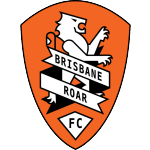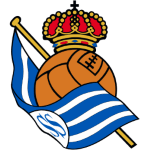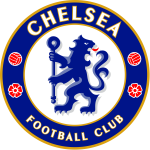FC Barcelona: How Hansi Flick’s Tactics Differ from Those of Previous Head Coaches.
ToC

Introduction to Hansi Flick
Born on February 24, 1965, in Germany, Hansi Flick began his football journey like most top coaches—first as a professional player.
During his playing days, he featured prominently for Bayern Munich.
Hansi Flick’s Player Profile
Flick started football journey at age six and played primarily as a defensive midfielder.
In 1985, at just 20 years old, he was scouted and signed byBayern Munich directly from his hometown club—a testament to his outstanding ability.
Unfortunately, injuries plagued much of his football career; nevertheless, he still managed to make over 100 appearances for Bayern across five seasons, firmly establishing himself as an undisputed mainstay in the side.

In fact, if you look at the lineup for the 1987 UEFA Champions League final, you’ll find Flick’s name among Bayern’s starters.
After leaving Bayern, Flick moved to 1. FC Köln, also in the Bundesliga. Persistent injuries limited him to just 44 appearances over three years—during which time he began to contemplate a shift into coaching.
Hansi Flick’s Managerial Profile
Flick’s transition from player to coach began in 1996, when he took charge of a local club in his hometown. His first season proved challenging, as the team suffered relegation under his stewardship. Undeterred, he accepted an ambitious offer from 1899 Hoffenheim, then a lower-division side with big aspirations. Despite the club’s forward-thinking project, Flick was unable to spark a turnaround and was eventually relieved of his duties.
After leaving Hoffenheim, Flick joined Giovanni Trapattoni’s staff as an assistant coach, gaining invaluable experience under the veteran Italian.
 He was soon recruited by Joachim Löw to serve as assistant coach of the German national team.
He was soon recruited by Joachim Löw to serve as assistant coach of the German national team.
Flick highlight moment came in the Euro quarter-final against Portugal—stepping in for a suspended Löw, he led Germany to victory.
In 2019, Flick rejoined Bayern Munich be a coaching setup. When the head coach was sacked midseason, Flick was promoted to take the reins. He immediately delivered a historic sextuple in his first campaign, winning:
- Bundesliga
- DFB-Pokal (German Cup)
- UEFA Champions League
- UEFA Super Cup
- DFL-Supercup (German Super Cup)
- FIFA Club World Cup
 However, following a disappointing Champions League exit in his second season, he was relieved of his duties.
However, following a disappointing Champions League exit in his second season, he was relieved of his duties.
And soon Flick succeeded his former mentor Joachim Löw as Germany’s head coach. His tenure proved rocky: the side won fewer than half of its matches, suffered an early World Cup group-stage elimination, and lost twice to Japan in competitive fixtures. As a result, he was dismissed from the role.
After a year away from management, Flick accepted an invitation to become head coach of FC Barcelona.
🔴🔵Overview of Barcelonas Managers in the 21st Century (Part 1) 👈📃
Hansi Flick’s Tactical Approach
More Faster
As a German manager, Hansi Flick has introduced Germany’s signature high-pressing style to Barcelona’s training ground. This marks a sharp contrast from the Guardiola-era Barça, which focused on slow, patient possession to dominate opponents.
 Under Flick, Barcelona plays at a noticeably faster tempo.
His philosophy involves pressing high up the pitch to win the ball back quickly, aiming to force mistakes and immediately capitalize on them. Flick’s Barcelona is relentless in their pressing, often catching opponents off guard and disrupting their rhythm.
Under Flick, Barcelona plays at a noticeably faster tempo.
His philosophy involves pressing high up the pitch to win the ball back quickly, aiming to force mistakes and immediately capitalize on them. Flick’s Barcelona is relentless in their pressing, often catching opponents off guard and disrupting their rhythm.
More Running
Since Flick’s arrival, Barcelona’s average distance covered per match has noticeably increased compared to last season. This is largely due to Flick’s attacking philosophy, which encourages players to constantly interchange positions and fully utilize the width of the pitch. Full-backs, in particular, play a crucial role — often overlapping with wingers to create 2v1 situations on the flanks. They are not just limited to providing width; under Flick, full-backs are also expected to push into the box and even take shots, resembling box-to-box players at times.

🔴🔵 2024/25 Barcelonas Basic Information 👈📃
More Direct
When people think of Barcelona, the first images that come to mind are usually tiki-taka passing and dazzling dribbling.
However, under Flick, the number of short passes has clearly dropped, while the use of long balls to create opportunities has increased.
Barcelona now looks to find forward options quickly, using longer passes to bypass the opposition’s press and reach attackers positioned higher up the pitch.
This shift not only reduces the risk of turnovers in dangerous areas but also keeps the tempo high, catching opponents off guard and creating immediate counterattacking chances.

More higher
Another major aspect of Hansi Flick’s high-possession build-up is positioning defenders much higher up the pitch.
This not only supports the team’s aggressive pressing—having more players near the center increases the chances of immediately winning the ball back—but also plays a key role in Flick’s offside trap strategy.
Barcelona now forces nearly seven offsides per match under Flick’s system., with even top forwards like Mbappe often getting caught.
FAQ
How many times has Barcelona won La Liga Titles?
How many times has Barcelona won La Liga Titles? Barcelona has won La Liga 27 times.
Where is the FC Barcelona?
Where is the FC Barcelona? FC Barcelona’s home stadium, Camp Nou, is located in Barcelona, Catalonia, Spain.
Where is the FC Barcelona?
Where is the FC Barcelona? FC Barcelona’s home stadium, Camp Nou, is located in Barcelona, Catalonia, Spain.
How many times has Barcelona won La Liga Titles?
How many times has Barcelona won La Liga Titles? Barcelona has won La Liga 27 times.
How many years has Messi played for Barcelona?
How many years has Messi played for Barcelona? Lionel Messi’s 21-Year Career at Barcelona Lionel Messi’s journey at Barcelona spans 21 years, with numerous milestones and records that have shaped both his career and the club’s legacy. ⚽2000, July 1: At the age of 13 years and 7 days, Messi joined Barcelona’s famed La Masia academy, moving from Argentine club Newell’s Old Boys U19 team. ⚽2003, November 16: Messi made his debut for Barcelona in a friendly match against FC Porto.












































